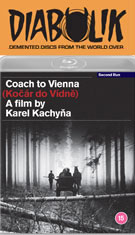

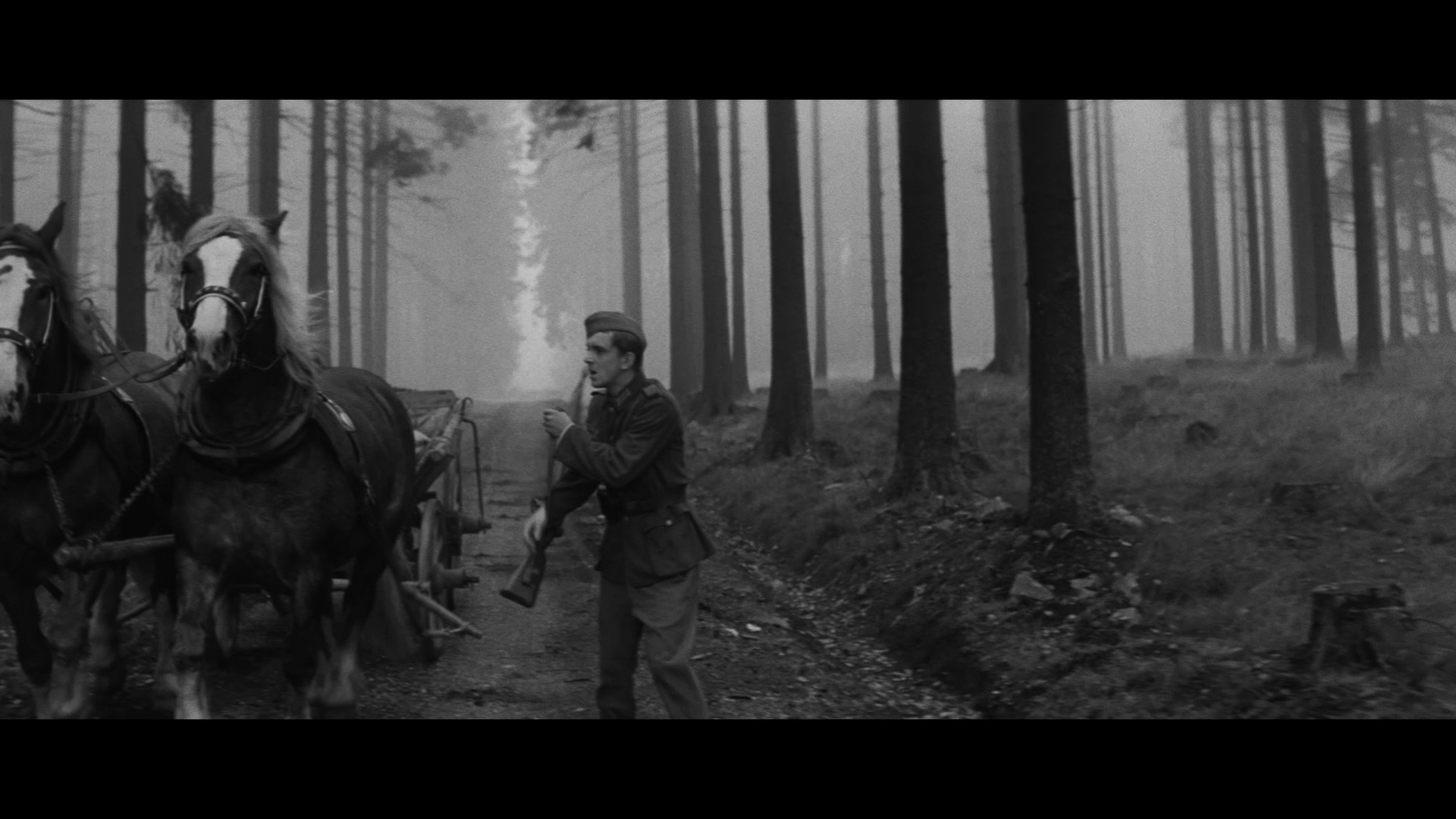 film, this controversial and
film, this controversial and  eventually banned three-character drama came along at the height of the Czechoslovak New Wave in the mid-'60s around the same time as the classic The Party and the Guests. Using striking scope black-and-white photography, Kocár do Vídne (Coach to Vienna, or Carriage to Vienna) spends almost its entire running time with just a trio of actors on screen but delivers a striking and sometimes eerie viewing experience that culminates in a surprisingly harrowing conclusion.
eventually banned three-character drama came along at the height of the Czechoslovak New Wave in the mid-'60s around the same time as the classic The Party and the Guests. Using striking scope black-and-white photography, Kocár do Vídne (Coach to Vienna, or Carriage to Vienna) spends almost its entire running time with just a trio of actors on screen but delivers a striking and sometimes eerie viewing experience that culminates in a surprisingly harrowing conclusion. 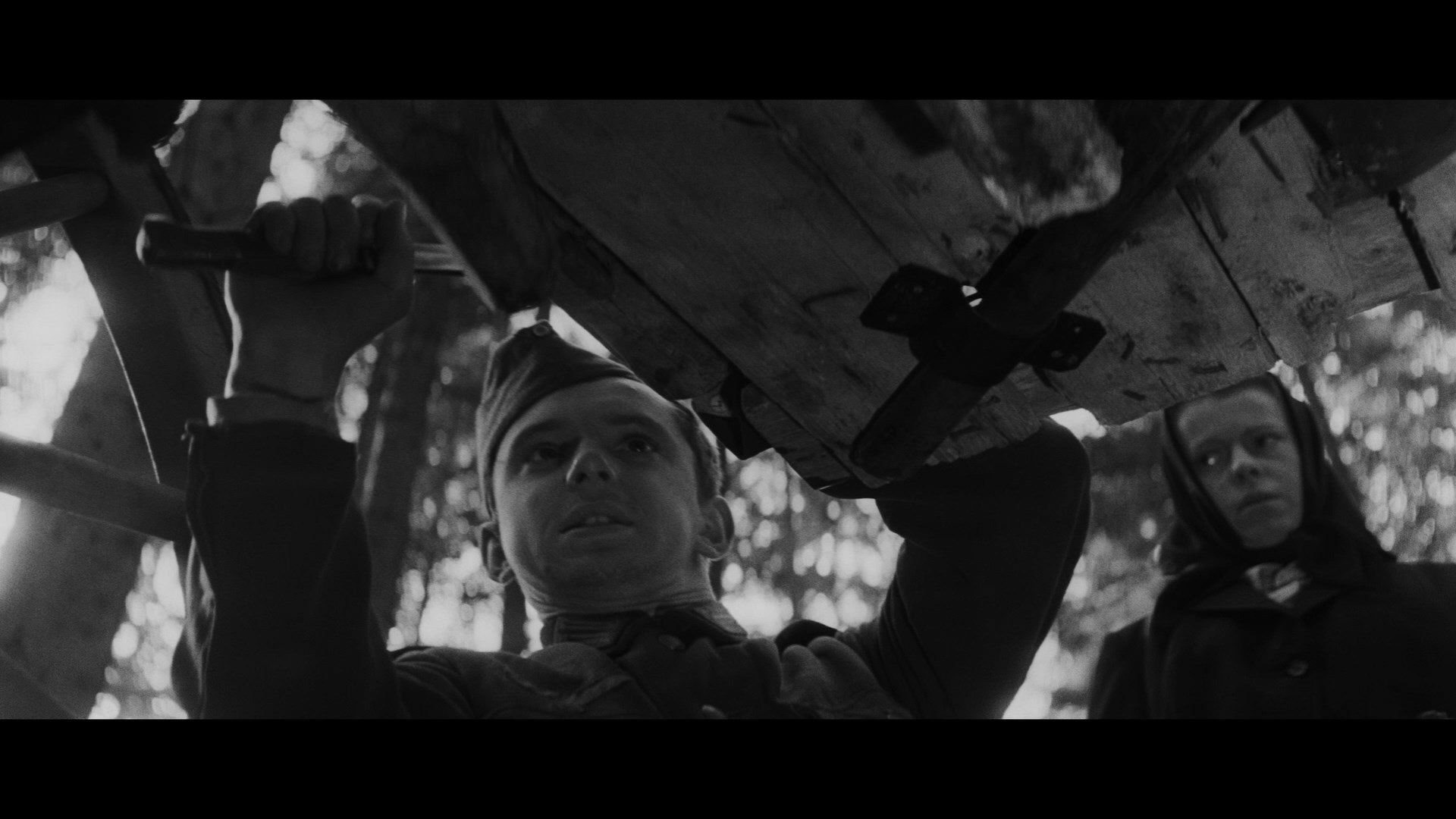 forgiveness.
forgiveness. Janžurová's inscrutable demeanor) doing less of the heavy lifting here than the beautiful, mobile camerawork. The occasional bursts of organ music add to the displaced feeling, and it's a very strong calling card for director and co-writer Karel Kachyna (most notable for his incendiary The Ear in 1970) and writer Jan Procházka, who sadly passed away in '71. The poetic approach also lulls you into a dreamy state here that ultimately tosses a glass of ice water in your face in the closing minutes, a development that had local authorities suppressing the film for its refusal to play by the standard black-and-white definitions of heroes and villains. It still packs quite a punch, too.
Janžurová's inscrutable demeanor) doing less of the heavy lifting here than the beautiful, mobile camerawork. The occasional bursts of organ music add to the displaced feeling, and it's a very strong calling card for director and co-writer Karel Kachyna (most notable for his incendiary The Ear in 1970) and writer Jan Procházka, who sadly passed away in '71. The poetic approach also lulls you into a dreamy state here that ultimately tosses a glass of ice water in your face in the closing minutes, a development that had local authorities suppressing the film for its refusal to play by the standard black-and-white definitions of heroes and villains. It still packs quite a punch, too.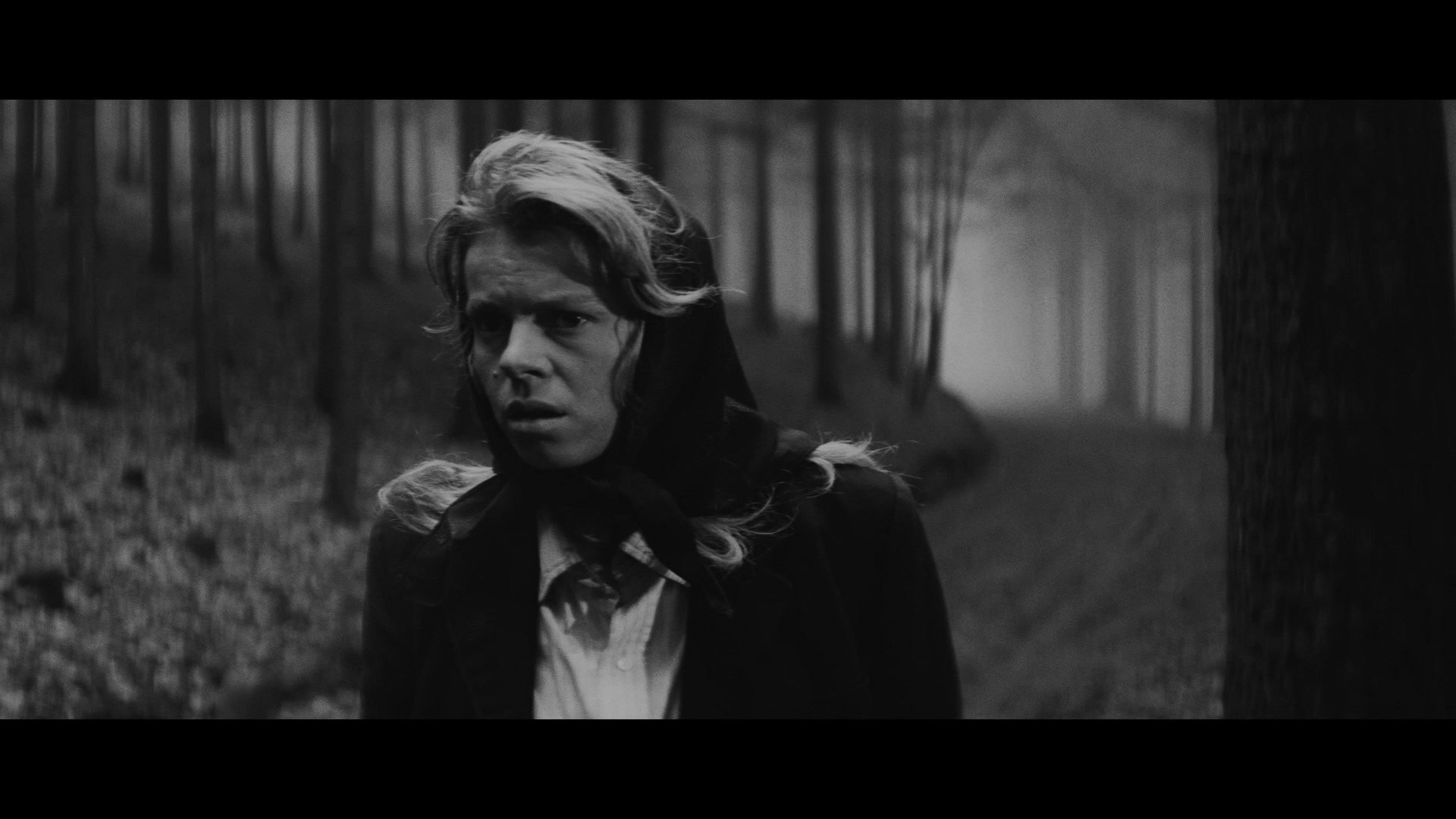 National Film Archive, with excellent contrast and detail. There's always something magical about watching monochrome scope films in pristine presentations, and this one's no exception. The Czech LPCM mono track is also in excellent shape, with optional and improved English subtitles provided. A new audio commentary by the Projection Booth podcast team features Mike White,
National Film Archive, with excellent contrast and detail. There's always something magical about watching monochrome scope films in pristine presentations, and this one's no exception. The Czech LPCM mono track is also in excellent shape, with optional and improved English subtitles provided. A new audio commentary by the Projection Booth podcast team features Mike White, 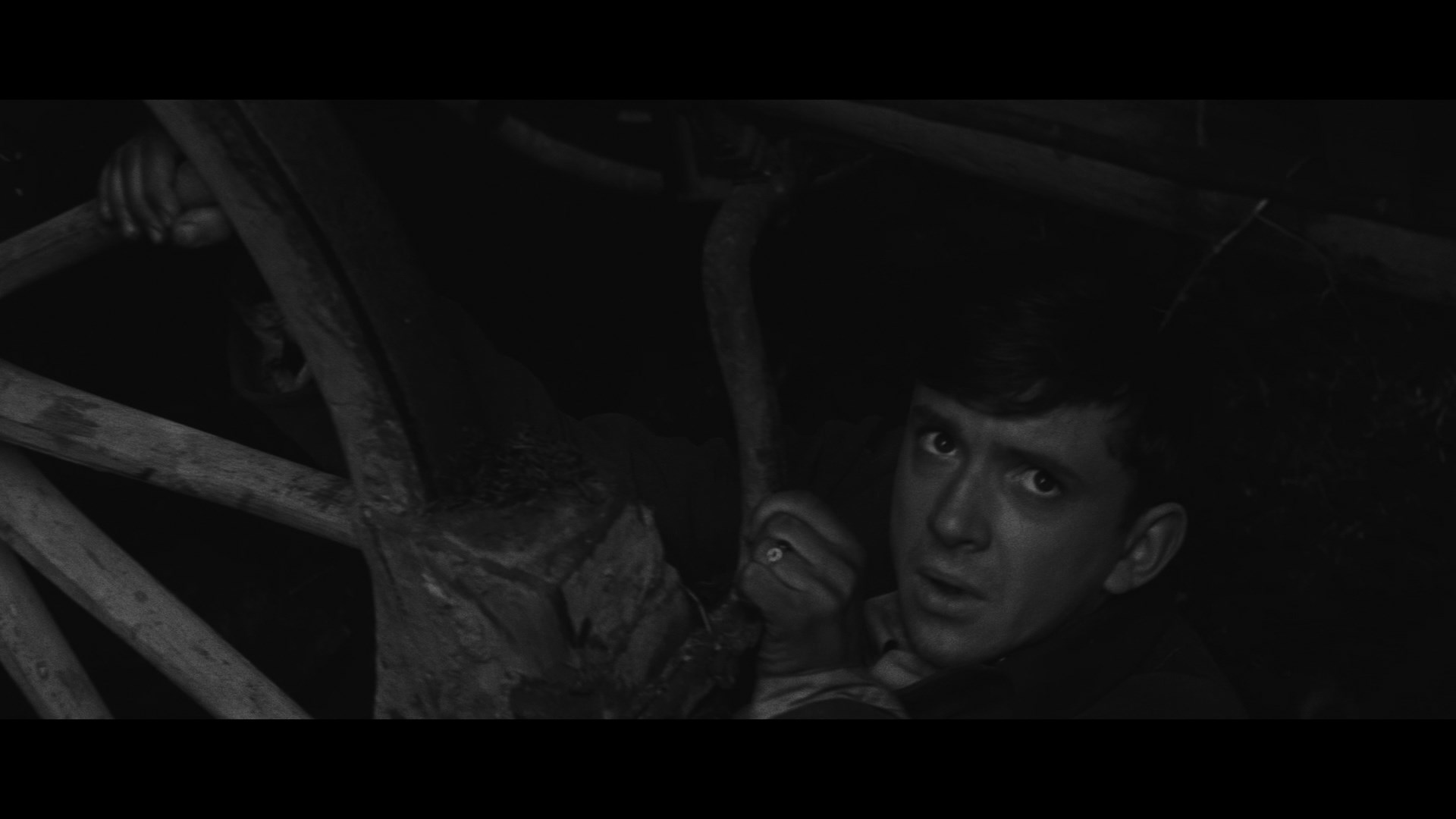 Samm Deighan, and Kat Ellinger in a low-key but perceptive analysis of the film tying it to other Czech cinema treatments of World War II, aesthetic similarities to other films like Marketa Lazarová, the fairy tale feel of some elements, Ellinger's aversion to "war drama," and the moral complexities tackled in the story. Also included are a newly created trailer, an image gallery of rare Hungarian lobby cards (28s), and 1949's It's Not Always Cloudy (Není stále zamračeno) (68m15s), Kachyňa’s rediscovered "semi-documentary graduation film, co-directed by Vojtěch Jasný." Using narration and documentary techniques, it's a fascinating snapshot of life in postwar Moldova where rebuilding is depicting at first from the POV of a young financial administrator forging a new life for himself away from his wife and daughter. From there we get to meet other residents ranging from townsfolk to farmers with modern technology promising new waves to build and grow. The disc also comes with a 20-page insert booklet with a thorough, informative essay by Jonathan Owen exploring the film's touchy subject matter, the bios of the cast and director, and the state of local filmmaking at the time.
Samm Deighan, and Kat Ellinger in a low-key but perceptive analysis of the film tying it to other Czech cinema treatments of World War II, aesthetic similarities to other films like Marketa Lazarová, the fairy tale feel of some elements, Ellinger's aversion to "war drama," and the moral complexities tackled in the story. Also included are a newly created trailer, an image gallery of rare Hungarian lobby cards (28s), and 1949's It's Not Always Cloudy (Není stále zamračeno) (68m15s), Kachyňa’s rediscovered "semi-documentary graduation film, co-directed by Vojtěch Jasný." Using narration and documentary techniques, it's a fascinating snapshot of life in postwar Moldova where rebuilding is depicting at first from the POV of a young financial administrator forging a new life for himself away from his wife and daughter. From there we get to meet other residents ranging from townsfolk to farmers with modern technology promising new waves to build and grow. The disc also comes with a 20-page insert booklet with a thorough, informative essay by Jonathan Owen exploring the film's touchy subject matter, the bios of the cast and director, and the state of local filmmaking at the time. ![]()